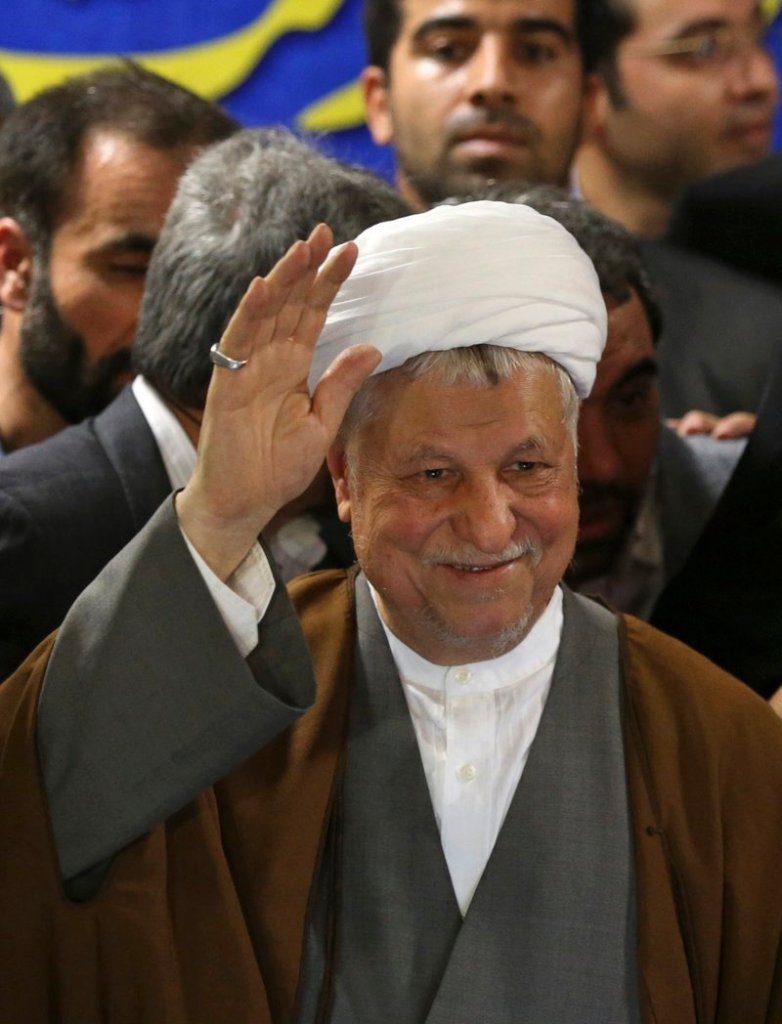TEHRAN, Iran – Signs on currency exchange shops in Tehran explained why the doors where temporarily shut: waiting to see if former President Akbar Hashemi Rafsanjani would seek to reclaim the office.
On Sunday, the money changers reopened early amid a mini-surge in Iran’s gasping economy after Rafsanjani joined the race.
Tehran’s stock exchange nudged higher. Merchants cut prices as the slumping Iranian currency clawed back about 4 percent against the U.S. dollar.
That’s how much Rafsanjani’s surprise decision reawakened Iran’s presidential election process, which now includes more than 680 hopefuls and will culminate June 14 with just a handful of names on the ballot to succeed Mahmoud Ahmadinejad.
The common wisdom held that the ruling clerics, which vet all the candidates, would clear only an establishment-friendly slate and pro-reform voters would be kept on the margins after years of withering crackdowns. The decision by another former president, Mohammad Khatami, to stay out of the race appeared to seal the scenario.
Suddenly, though, the 78-year-old elder statesman Rafsanjani has challenged that equation by putting his name in the election mix just minutes before the registration deadline Saturday.
He has enough of a liberal aura to re-energize reformers for the first time since being crushed in the wake of Ahmadinejad’s disputed 2009 re-election. He also is seen as a potential steadying hand on Iran’s sanctions-sapped economy as a “millionaire mullah” patriarch of a family-run business empire.
In one of his first statements since joining the race, Rafsanjani spoke in general terms Sunday of seeking a new “economic and political” rebirth in a time of “foreign threats and sanctions.”
Meanwhile, he still holds a senior position inside the ruling theocracy that gives him tough armor against likely attempts to sully his reputation as the election moves into its next stage.
The challenge, however, is whether reformists can fully rally behind a leader who left office 16 years ago and has built a reputation as a cunning political survivor that earned him nicknames including Akbar Shah, or Great King. He has criticized crackdowns on dissent, but also retains a top post inside the theocracy and closely follows the official line on issues such as Iran’s nuclear program and alliances including Lebanon’s Hezbollah and Syria’s regime.
Send questions/comments to the editors.



Success. Please wait for the page to reload. If the page does not reload within 5 seconds, please refresh the page.
Enter your email and password to access comments.
Hi, to comment on stories you must . This profile is in addition to your subscription and website login.
Already have a commenting profile? .
Invalid username/password.
Please check your email to confirm and complete your registration.
Only subscribers are eligible to post comments. Please subscribe or login first for digital access. Here’s why.
Use the form below to reset your password. When you've submitted your account email, we will send an email with a reset code.